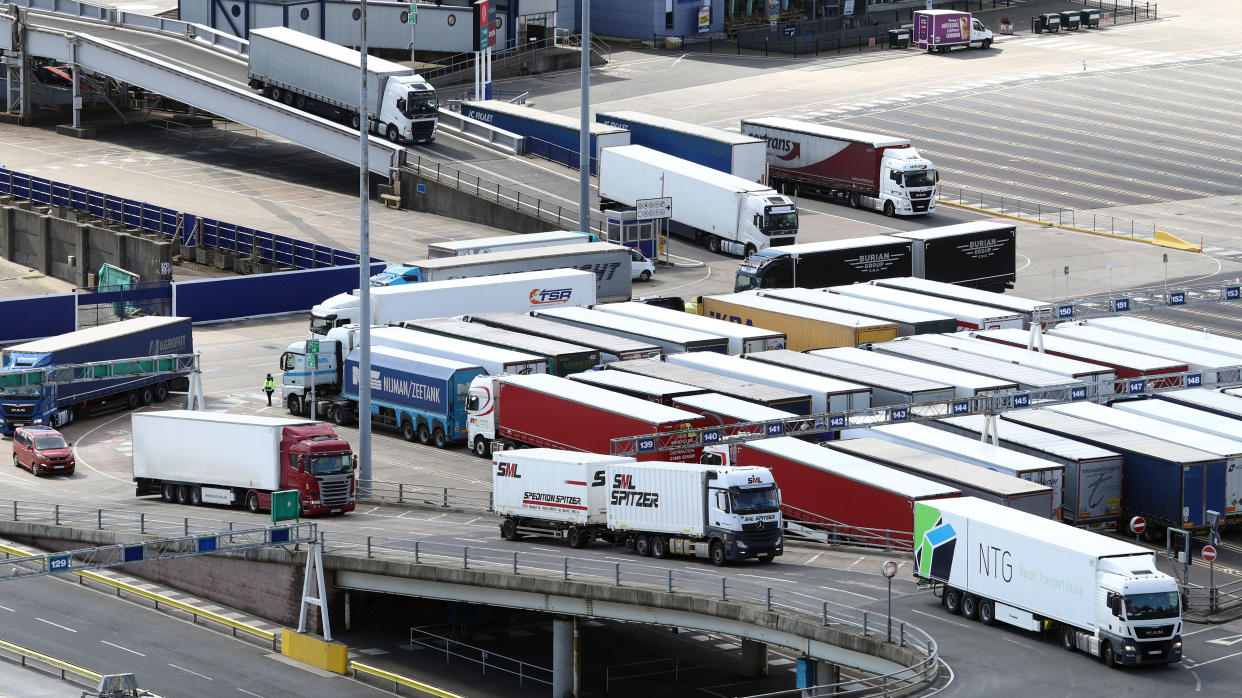Get ex-cons driving lorries to ease HGV crisis, says logistics boss

Haulage company Clipper (CLG.L) has recommended hiring ex-prisoners and the long-term unemployed in order to plug labour shortages in the HGV market.
The many knocks of new Brexit protocols, COVID-19 lockdowns and the strains of an overwhelming move to online shopping rather than retail, has left the trucking industry reeling in recent weeks and months.
However, CEO Tony Mannix shrugged off the wider issues facing the industry, saying that due to initiatives such as its three-year old Fresh Start programme, and apprenticeships and grad schemes created in anticipation of Brexit disruption, the shortage is affecting the business "but not as much as the market would suggest.”
The Road Haulage Association (RHA) reported in July that there is a shortage of 100,000 drivers and warned the situation has reached a “crisis point” with critical supply chains failing.
Read more: Roast potatoes and pigs-in-blankets: the Christmas foods under threat
It said that many drivers have gone back to their home countries either due to uncertainty over new Brexit rules, or because of UK’s COVID-related lockdown restrictions. Many have not returned.
On top of this, HGV (heavy goods vehicle) drivers are made up of an ageing population that is retiring; and there is a major backlog of tests needed to be taken before drivers can qualify to operate lorries, because the tests were put on hold during the pandemic.
Mannix also noted that truck driving was not considered to be a "sexy career" for a lot of people, which could also be the reason for shortages.
In spite of logistical squeezes with driver shortages across the industry, Clipper brought on 2,000 new members of staff last year.
It also said it was trialling introducing longer lorries to the road to combat shortages, a programme it said could eventually see one in four lorries taken off the roads due to the added capacity. Mannix said while it wouldn't be appropriate for city centres, a move to longer vehicles would reduce emissions, reduce the need for drivers and improve air quality.
Company bosses also said that they were considering performance-related pay and retention bonuses to keep employees, but were doing so with "eyes wide open" about the potential knock-on effects to its customers.
Clipper's full-year results saw it swing to a record-breaking performance for the year, a fact the company said reflects continuing and "permanent growth" in online retailing, pandemic aside.
The company said that even with a potential tail off in online shopping as lockdowns ease, its bricks-and-mortar delivery business was also going strong.
Over the last year, the trucking company has seen volume growth and an extension of services on existing contracts, notably with ASOS (ASC.L), Farfetch (FTCH), John Lewis, Westwing and Wilko.
It is also working with Revolution Beauty, T.M.Lewin, Amara Living, Hope & Ivy, Joules, N Brown, Simba Sleep, The Very Group., Linenbundle, H&M and JD Sports.
Read more: KFC hit with supply issues as UK stores run out of salt, cups and chicken boxes
Clipper is set to invest in eight new warehousing facilities as it expands.
The company saw a revenue growth of 39.1%, e-commerce related revenue growth of 52.0% and accelerating profitability.
It upped its dividend 14.4% — the first year total dividend per share was 11.1p.


